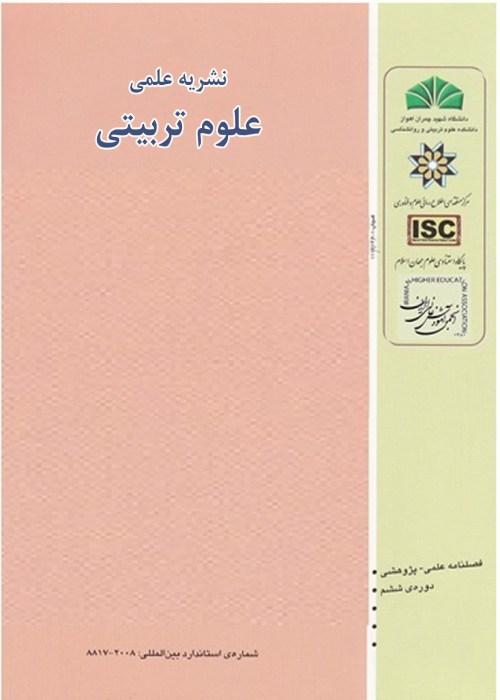A sociological analysis of Emile Durkheim's educational theory
Author(s):
Abstract:
In his scientific activities, Durkheim was increasingly pursing the issue that government through social intervention in moral planning, should utilize and implement social knowledge and sociology to establish social coherence and equilibrium. Dorkheim maintained the view that he was a pioneer who intended to reform the society by following social positivist codes (rules). He thought (assumed) that his commitment to moral and social reforms via improvement in the structure and content of education for the benefit of society, made him a sociocentrist (socialist). However, contrary to his alleyed reformative purposes his ideas were closer to the traditional conservative purposes, which involve, moral harmony and permanent hierarchy. In his belief, development must be in harmony with social order, not with human beings freedom, and he assumed that it was the duty of modern educational to realize this goal. Dorkheim's main concern was re-establishing social coherence and social harmony in the modern industrial world.
Keywords:
Society , sociology , education , norms , ethics , values , Modern Society , industrial society
Language:
Persian
Published:
Education Journal, Volume:18 Issue: 1, 2012
Page:
43
magiran.com/p982194
دانلود و مطالعه متن این مقاله با یکی از روشهای زیر امکان پذیر است:
اشتراک شخصی
با عضویت و پرداخت آنلاین حق اشتراک یکساله به مبلغ 1,390,000ريال میتوانید 70 عنوان مطلب دانلود کنید!
اشتراک سازمانی
به کتابخانه دانشگاه یا محل کار خود پیشنهاد کنید تا اشتراک سازمانی این پایگاه را برای دسترسی نامحدود همه کاربران به متن مطالب تهیه نمایند!
توجه!
- حق عضویت دریافتی صرف حمایت از نشریات عضو و نگهداری، تکمیل و توسعه مگیران میشود.
- پرداخت حق اشتراک و دانلود مقالات اجازه بازنشر آن در سایر رسانههای چاپی و دیجیتال را به کاربر نمیدهد.
In order to view content subscription is required
Personal subscription
Subscribe magiran.com for 70 € euros via PayPal and download 70 articles during a year.
Organization subscription
Please contact us to subscribe your university or library for unlimited access!


